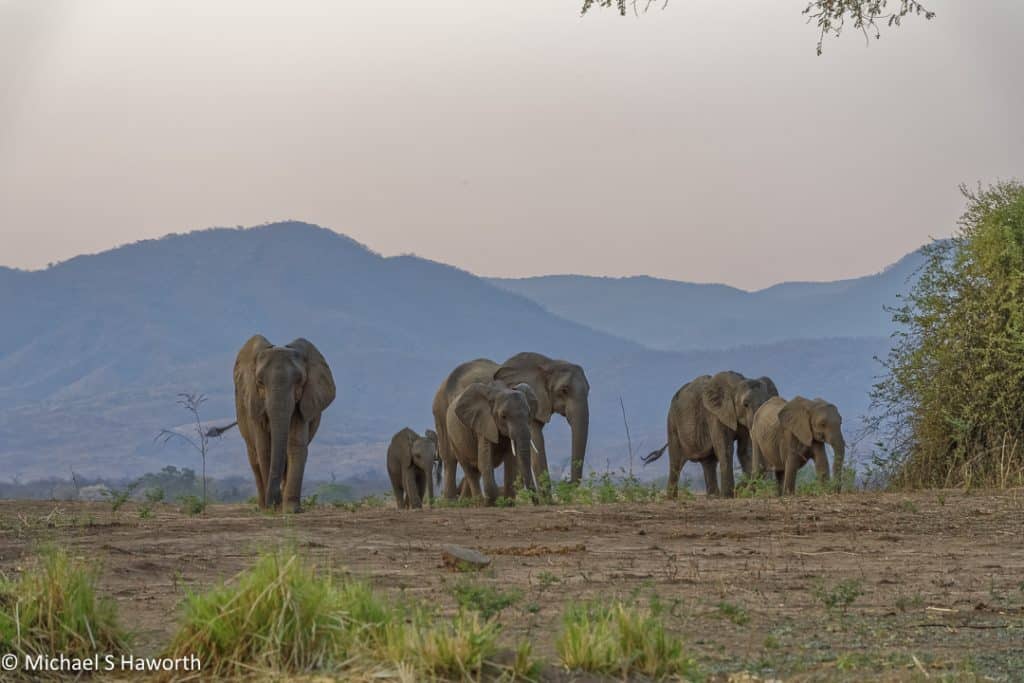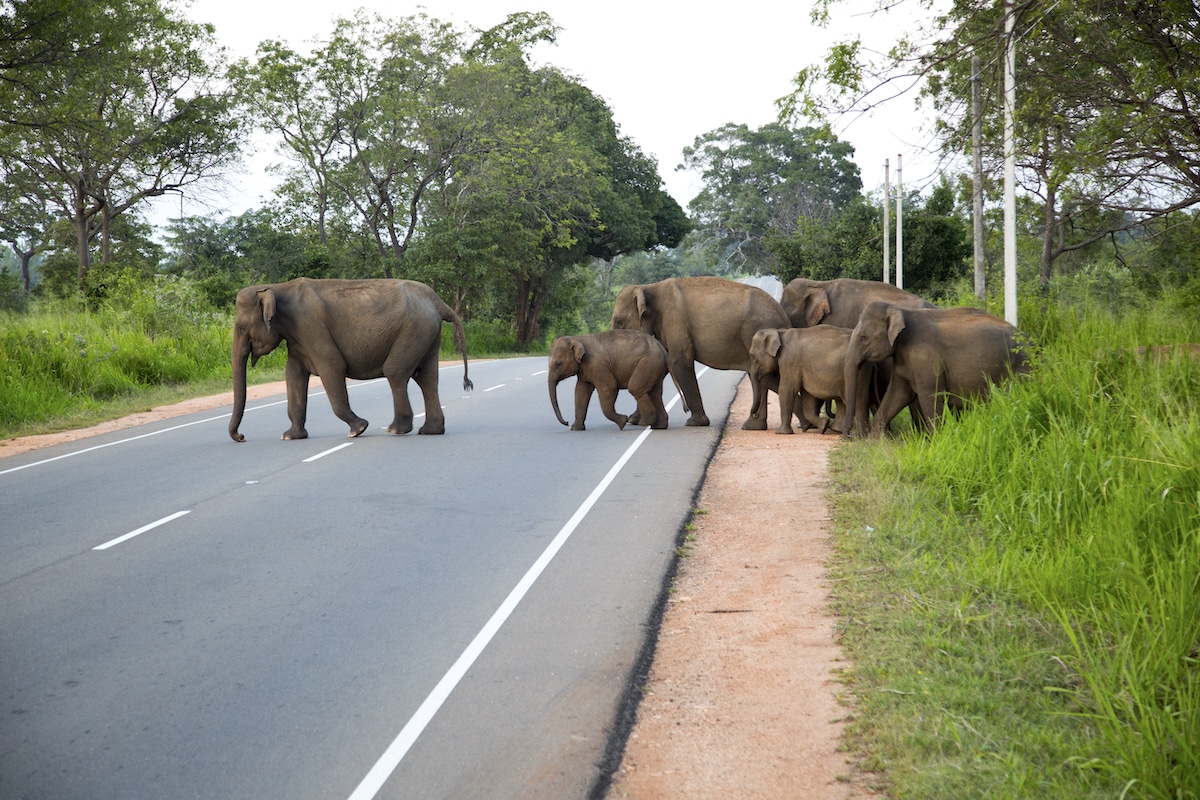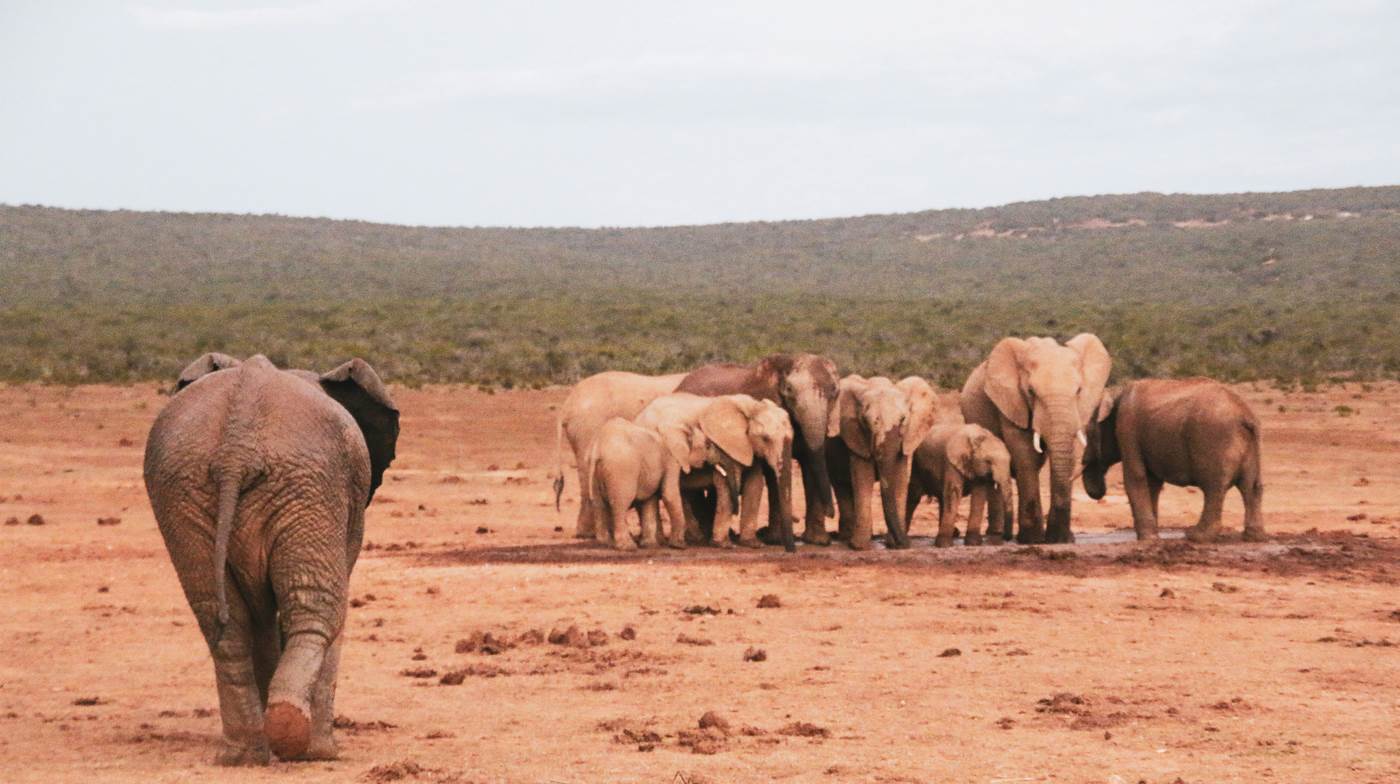October in Mana Pools in the Zambezi valley below the escarpment is called suicide month, for a good reason. In the five days we were there, three of them averaged 43 degrees centigrade in the shade and 53 in the direct sun in the early afternoon.
Part of the reason for visiting Mana at this time is that it is late in the dry season and most the animals are forced down to the river for water.
The Zambian escarpment across the river. The spring heat in the Zambezi valley. The massive Ana and Mahogany trees. It is all so familiar. It feels like a home-coming. It looks the same but much has changed. Spend some time and the changes will reveal themselves. You will sense the rhythm and the pulse of raw nature, all keyed in exquisite beauty and serenity. Welcome to Mana Pools.

Wild Eye, under their experienced guide Johan van Zyl, guided the photographic safari and we stayed at Mwinilunga safari camp, run by friends Dave and Tess. The tented camp is right on the edge of the Zambezi river nestled under the large evergreen Natal Mahogany trees in the Trichilia area on the Mana floodplain.
The river itself is life-giving and its banks are covered with lush vegetation. The Zambezi river is amply populated with hippos. It is the perfect environment for them. There is plenty of space, the water is not too deep and there is plenty of lush vegetation along the river bank to feed on. The Zambezi river at the Trichilia area must be at least half a kilometre wide and flows at about five kilometres per hour.
Mana Pools is so-called because of the four pools which have long since been cut off from the main Zambezi river channel and now form part of an old ox-bow lake. The section of Mana we travelled around was down on the floodplain.
There was plenty of sand but there are also clay basins which hold water through the winter. These remaining pools of water were evaporating quickly in spring as the temperatures soared. Two of the four main pools still had water, Chisasiko and Long Pool. Other smaller pools existed but were drying fast.
We found a large flock of Marabou Storks feeding on the last of the catfish (barbel as we call them) in a fairly large but diminishing pool of water.
“Looks often create judgement. Gathered to feast on the trapped remaining fish. Not equipped for predation but scavenging.Marabous are part of nature’s disposal team.These are not your normal storks; voiceless,they stand hunched shouldered like“Dr Death” waiting for the opportunity to peck at the dead. They are masters of patience, ever alert and wonderful aviators. Nature is always more complex and intriguing than its looks.”
The Marabous were picking off the young, still alive barbel and leaving the floating dead ones. This was the largest congregation of Marabou storks I have ever seen and they had been feasting for a couple of days before we arrived.
“Sometimes it is the quiet observer who sees the most.” ~Kathryn L. Nelson
There was no fighting though the odd individual did exert its dominance.
The shallow pool was seething with the remaining trapped fish. It was a strangely quiet scene with just the sound of Yellow-billed Kites, Stilts and lapwings. The Marabous were voiceless but for the odd bill-clapping and croaking from their pink gular sac.
There was a lot of bird life around the pool. Yellow- billed Kites were flying in and out of the Marabous, Pied Kingfishers and a fish eagle were around, looking and waiting for a little space for their flight path.
“The excitable observer will pass judgement first and then make knowledge conform to judgement; the prudent observer will first learn to know and then judge according to knowledge.” ~ Thomas Cleary
The interaction with the Marabous was fascinating but the dank smell of rotting barbel eventually chased us away to look for fresher scenes. We wandered further along the river to BBC camp and there under a trees were three lionesses resting in the shade.
As the sun started to sink in the western sky the bush seemed to come alive. Two family groups of elephants wandered passed us.
They wandered through the thick textured Vetavariagrass on their way down to the water’s edge which was cool and lush.
Hot, but without a sound the family made its way down to the water’s edge.
“I like “Julie Gold’s song “From a Distance”. Her song reminds me of the world as seen through an observer’s eye. Seen from a distance, we are people in the same band playing music for everyone. We are artists who play the most beautiful instruments in the world – life.” ~ Ilchi Lee
The Zambezi river giveth life and taketh away life. This time the river showed her bounty.
The elephants lingered a long while sating their thirst and relishing the cool of the verdant river bank.
A big bull elephant walked right passed our vehicle straight up to a large Ana tree in front of us. After searching for a short while for seed pods, he decided to shake things up a bit.
It is quite astounding to watch this massive elephant place the tree trunk between his tusks and push the entire tree with his head and trunk. He shook the tree vigorously a couple of times and a shower of seed pods fell from the branches.
He then proceeded to pick up each and every seed pod, obviously a seasonal delicacy.
Not thirty metres from where the bull elephant had been shaking the Ana tree, the three lionesses had moved closer to the water and were out in the open.
What we thought were three lionesses turned out to be four. They were so well camouflaged that we did only see the fourth female.The impala down near the river had caught all their attention. In the image below the fourth female was already making her way closer to the impala.
The lionesses were very gaunt and not in good condition. They had obviously not eaten for a quite few days. The dry season is usually prime time for predators, but Mana is no easy environment.
After watching the passing parade for an hour or so we had to make our way back to camp. On the way we drove past Chisasiko pool, one of the four Mana pools. At the west end of the pool was an elephant cow in the hyacinth quieting feeding without a care in the world.
It was so good to be back. It was very hot, but a dry heat. There are so many things to see that for the most part you are so distracted that you do not think about the heat. I have found that if you do not consciously think about it you do not get neurotic about is and all is well.
“Photographing in Mana is not about sitting on a vehicle as an insulated observer. You get off that vehicle and walk with the animals. Get off that vehicle and you will be changed. Withan experienced guide you blend in so as not to disturb the game.
It is a wilderness pilgrimage. Spending time in this wild place will restore your perspective, heighten your awareness of the beauty all around you and a deep sense of gratefulness will well up inside you. Mana will unlock memories and open up new, uncharted pathways into your consciousness.”
~ Mike Haworth
Explore, seek to understand, marvel at its inter-connectedness and let it be.
Have fun,
Mike
Mike Haworth
My name is Michael Singleton Haworth, nicknamed “Howie”. I was born and raised in Zimbabwe and now live in South Africa. Zimbabwe was a fantastic place for youngsters to grow up, where opportunities abounded to get into the bush. I have two great ‘shamwaris’, Mike Condy and Adrian Lombard, whom I known for around 60 years. All of us have a great love of the bush and birds.





















Leave a Reply